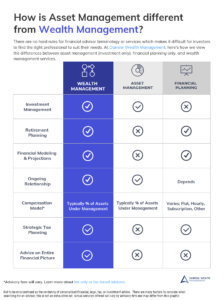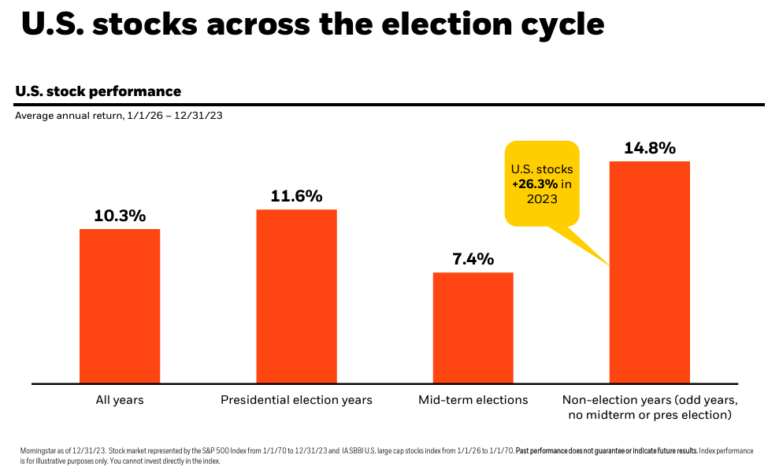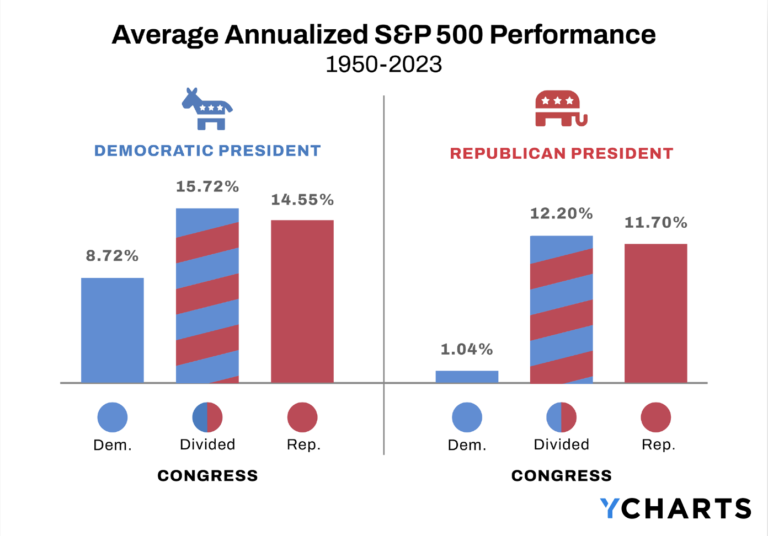What is a Fee-Only Financial Advisor?
Fee-only wealth management firms are only paid by their clients (typically as a percentage of assets under management); they do not sell products or receive commissions. Fee-based financial advisors are also paid by their clients, but they can also earn commissions and other revenues from third parties by selling products like life insurance or mutual funds. It’s important to understand the differences between fee-only vs. fee-based financial advisors when searching for wealth management services.
Differences Between a Fee-only vs. Fee-based Wealth Management Firm
Fee-only financial advisors don’t sell products or receive commissions
A fee-only wealth management firm only receives compensation from their clients. Fee-only financial advisors are free from the potential conflicts of interest that other advisors may encounter if part of their pay is based on commissions or sales.
A fee-only advisor is only paid by their client. They do not sell financial products (like insurance or stocks), receive commissions, or other revenues from 3rd parties.
Advisory fees are typically a percentage of assets under management (AUM). Other models include a flat fee, retainer, or hourly, depending on the firm. Calculating advisory fees as a percentage of the assets that they manage on your behalf means the advisor is with you when the market goes up – and when it goes down. The fee-only model is often thought of as the most transparent and objective.
Investors are typically more comfortable with the fee-only arrangement because it sets the stage for a trusting relationship to develop. Instead of selling, fee-only advisors can be an objective source of financial advice. Most fee-only wealth managers are also fiduciaries.
Darrow Wealth Management is a fee-only financial advisory firm.
Fee-based financial advisors often receive advisory/management fees and commissions
Fee-based advisors play the role of salesperson and advisor. They can be compensated by client fees and commissions for selling financial products (like insurance or annuities) and securities (e.g. stocks, mutual funds) to their clients. Advisors at large wirehouses or individuals affiliated with a broker-dealer often receive additional financial incentives to push in-house funds and proprietary products. Although disclosure of conflicts of interest may be necessary in some situations, the verbiage might be technical .
The commissions on these products can be substantial which can create concerns about conflicts of interest.
Fee-based financial advisors can also receive a referral fee in exchange for referring a client to another professional, such as a CPA or attorney. This can incentivize the advisor to recommend one professional over another.

Are Financial Advisors Worth the Cost? It’s Not Just the Value of Your Time
Financial Advisor vs. Wealth Manager vs. Financial Planner
There are many names for financial advisory professionals, and unfortunately, there isn’t a strong uniform standard to clarify titles for investors. Generally, these titles (and a long list of others we didn’t include) are used interchangeably.
When looking for a financial advisor, focus on the services the advisor is offering and how it compares to your needs. Typically, a wealth manager implies an ongoing relationship with an advisor and often includes financial planning and asset management.
A financial planner might offer the same services or planning-only, with or without an ongoing relationship. Similarly, a financial advisor could provide transactional support all the way up to comprehensive wealth management.
Since anyone can hold themselves out to be a financial planner or advisor, additional credentials can help you compare advisors’ qualifications. For example, the CERTIFIED FINANCIAL PLANNER™ professional designation is typically considered the “gold standard” for financial advisors, as the Chartered Financial Analyst® designation is to asset management.
Learn more about our team of advisors.
Does a Financial Advisor Always Act in Your Best Interest?
A fiduciary duty always requires an advisor to act in the client’s best interest. Registered investment advisors are held to a fiduciary standard, which means they are always obligated to put their clients’ interests ahead of their own. This is the highest standard of care under the law.
Although many fee-only financial advisors are registered investment advisors (and fiduciaries), it is possible for a firm to be one and not the other.
Recent legislation (the now-defunct Department of Labor’s Fiduciary Rule and Regulation Best Interest (Reg BI) which goes into effect in June 2020) aims to raise the standards for broker-dealers and the “advisors” that work for them. At a high level, under previous rules, brokers fell under a suitability framework, which meant recommendations needed to be suitable for the investor, not necessarily in their best interest.
In contrast to fiduciary duty, brokers were obligated to act in the best interest of their employer, not their client. Under Reg BI, brokers will be required to act in the client’s best interest, but at the time a recommendation is made. It is not an ongoing duty of care.
Darrow Wealth Management is a registered investment advisor, so we must always act in client’s best interest.
Do I Need A Financial Advisor Or Should I Do It Myself?
When speaking with advisors, dig deeper into compensation and fees. Although a fiduciary duty is the most stringent standard, some advisors only need to wear their “fiduciary hat” when providing certain advice.
Adding to the complexity, not all registered investment advisors are fee-only, creating a potential conflict between their role as a fiduciary and ability to make commission-based sales. Always research the advisor and the firm on the SEC.gov or FINRA.org website.
Advantages of Working with an Independent Wealth Management Firm
A truly independent financial advisor has no affiliations with a large brokerage firm. Why is that important? As an independent wealth management firm, we don’t have allegiances to a particular fund family or product. Independence and compensation method help an advisor be objective when making recommendations.
Independence also matters when a client is in need of other services, such as life insurance or banking. As an independent wealth manager, we will make referrals to other professionals when clients need insurance or other products, based on what we believe will be in the client’s best interest. The professionals in our referral network have no affiliation with us or compensation agreement. Instead, the referral is based on client need alone.
Advisors with affiliations to a bank, wirehouse, or large asset manager might not be able to make an independent recommendation. Consider, for example, if you walked into a Bank of America branch and asked for the best type of savings account on the market. As you would expect, they’re going to recommend one of their products.
3 Ways to Find a Fee-Only Investment Advisor
Wirehouses vs. Broker-Dealers vs. Registered Investment Advisors
Independence is critical in asset management. Independent financial advisors will typically cast a wide net and review a global spectrum of investment options before making any selections. Firms with an affiliation to a broker-dealer and other fee-based advisors will often be loyal to a fund family due to compensation agreements and commissions.
The largest wirehouse full-service brokerage firms today are Morgan Stanley, Merrill Lynch, UBS, and Wells Fargo. Independent broker-dealers include LPL Financial, Ameriprise, and Raymond James. While independent broker-dealers may offer a greater scope of products and funds to advisors on their platform, there are still differences with registered investment advisors; most notably the duty as a fiduciary.
Today, many financial advisory and wealth management firms operate as a subsidiary of another larger, parent firm. For example, Merrill Lynch often has affiliations and partnerships with smaller firms or stand-alone advisors. LPL Financial is a network of stand-alone advisors on the LPL platform.
Affiliated advisors can still call themselves “independent” or a registered investment advisor, but they will still need to disclose the relationship. This is one reason why it is always important to read the disclosures, such as the ADV.
Choosing a Fee-Only Wealth Management Firm with a Fiduciary Duty
Many investors will choose a fee-only wealth management firm once they understand the difference in compensation arrangements. Before deciding on a financial advisor, do your homework and ensure you are comfortable with the firm. After all, if you don’t trust the recommendations provided by your advisor, why are you paying for them?
Darrow Wealth Management is proud to be:
- Fee-only wealth management
- Independent
- Registered investment advisor
- A fiduciary
- Second-generation family business










